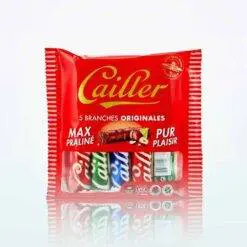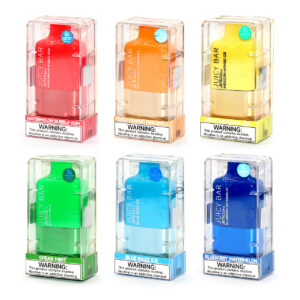The Ethical Farmer’s Guide to Choosing Disinfectants in Organic Farming
In the pursuit of organic or sustainable farming, many producers aim to cut down on synthetic inputs — and that’s a good thing. But when it comes to farm hygiene and animal health, some tools are not just necessary, they’re non-negotiable. Disinfectants are one such tool.
However, not all disinfectants are created equal. If you’re trying to balance disease prevention with eco-conscious practices, it’s time to rethink what “clean” really means.
The Importance of Disinfectants in Farming
Disinfectants play a vital role in livestock and poultry farming. These substances are used to kill or deactivate harmful pathogens, including bacteria, viruses, fungi, and parasites that could otherwise lead to widespread disease outbreaks. On farms, these microbes can linger in animal housing, waterlines, feeding equipment, transport crates, and even on workers’ boots or clothing.
As part of a comprehensive set of animal health solutions, disinfectants help maintain a clean, biosecure environment that:
- Protects animal health, reducing illness and mortality
- Prevents the spread of zoonotic diseases (those that can transfer to humans)
- Improves productivity, as healthier animals grow better and faster
- Reduces dependence on antibiotics, aligning with antimicrobial stewardship goals
Regular, well-targeted disinfection is essential — not just during disease outbreaks, but as a preventive measure in biosecurity protocols.
Disinfectants and Organic Farming: Clearing the Confusion

Many organic or eco-conscious farmers hesitate to use disinfectants because of the belief that “natural means chemical-free.” While it’s true that organic standards often limit synthetic inputs, this doesn’t mean you must rely solely on vinegar or sunlight to sanitize your farm.
Here’s what to keep in mind:
- Organic farming doesn’t mean no hygiene interventions — it means using approved, low-impact products that don’t leave toxic residues or damage ecosystems.
- Some disinfectants are allowed in organic systems if they meet certain safety and biodegradability standards.
- The key is choosing products that are non-toxic, non-corrosive, biodegradable, and free of harmful residues.
- Ironically, refusing all disinfectants may increase the risk of disease, potentially leading to more suffering for animals — which goes against the principles of humane, responsible farming.
Being “chemical-free” isn’t the goal — being safe and sustainable is.
Also read: Integrated Pest Management Meets Miticides: Best Practices for Smart Farmers
A Guide to Choosing Disinfectants in Organic or Clean Farming

When shopping for a disinfectant that supports your commitment to clean farming, here are the most important criteria to consider:
1. Broad-Spectrum Efficacy
Look for disinfectants that are proven to kill a wide range of pathogens, including bacteria, viruses, and fungi. Especially in mixed-species farms or high-turnover poultry sheds, you need coverage that protects across the board.
2. Biodegradability and Safe Chemistry
If your goal is sustainability, it’s crucial to understand what’s in the bottle. Here’s a quick guide to chemicals to look for — and those to avoid:
Better choices (often allowed in organic or sustainable systems)
- Hydrogen peroxide – breaks down into water and oxygen; effective and eco-friendly.
- Peracetic acid – strong disinfectant, biodegradable, commonly approved in organic farming.
- Organic acids (like lactic, citric, or formic acid) – commonly used in waterline hygiene and gut health.
- Potassium permanganate – effective in footbaths and water treatments; allowed in some organic settings.
- Essential oil-based disinfectants – natural antimicrobial properties (though not always enough on their own).
Avoid or limit:
- Quaternary ammonium compounds (QACs/quats) – effective but often non-biodegradable and toxic to aquatic life.
- Phenols – persistent in the environment and harmful to both animals and humans.
- Formaldehyde or glutaraldehyde – very effective but extremely toxic and potentially carcinogenic.
- Chlorine bleach (sodium hypochlorite) – corrosive and harmful in runoff, though sometimes permitted with restrictions.
Tip: Always check for organic certification labels or material safety data sheets (MSDS) to verify what’s inside.
3. Non-Toxic and Animal-Safe
Choose disinfectants that are non-irritating to animals and safe for use around feed, water, and bedding once properly rinsed. Many sustainable options are formulated to minimize harm to both workers and animals.
4. Approved for Organic Use (If Needed)
If you’re certified organic or aiming to be, check if the product is:
- Listed by your country’s organic regulatory body (e.g., USDA Organic, NASAA, ACO)
- Free from prohibited substances
- Accompanied by clear documentation of organic compatibility
5. Residual Action (With Caution)
Some disinfectants offer long-lasting protection by remaining active on surfaces. While this can be useful, ensure it’s not leaving behind residues that interfere with composting, manure use, or the organic integrity of animal housing.
6. Compatibility with Farm Surfaces
Pick products that won’t corrode metal, degrade plastic, or clog equipment. Many eco-friendly formulas are gentle on materials and easier to clean up.
7. Ease of Use and Dilution
Practicality matters. Choose a disinfectant that:
- Has a clear dilution guide
- Works in a range of temperatures and water conditions
- Can be used in sprayers, footbaths, or misting systems efficiently
In a Nutshell
Disinfection isn’t the enemy of clean farming — it’s a key ally. In an environment where animal health, environmental impact, and ethical responsibility must go hand in hand, choosing the right disinfectant is about balance, not extremes.
Organic-compatible and sustainable disinfectants do exist. They give you the power to run a clean, responsible operation without compromising your principles — or your animals’ wellbeing. The next time you read a product label, don’t just look for what’s not in it — ask what it does for the health of your farm, your animals, and the planet.
Author Bio: Carmina Natividad is a daytime writer for Abbey Labs, an Australian company offering reliable animal health solutions to support the wellbeing of pets and livestock. She loves creating easy-to-read content about animal care, veterinary tips, and the latest solutions that help animals live healthier lives.












